“Why Do Fools Fall in Love” film is a captivating biographical romantic drama that explores the life and legacy of Frankie Lymon, the lead singer of Frankie Lymon & the Teenagers. At WHY.EDU.VN, we delve into the movie, its connection to the iconic song, and the lasting impact it has on music and cinema. Let’s discover the cultural resonance, legal battles, and timeless soundtrack that define this film.
1. What is the “Why Do Fools Fall in Love” Film About?
The “Why Do Fools Fall in Love” film, released in 1998, is a biographical drama centered around the life of Frankie Lymon, the lead singer of the 1950s rock and roll group Frankie Lymon & the Teenagers. The film primarily focuses on the legal battle among three women, each claiming to be Lymon’s widow and entitled to his royalties after his death from a drug overdose in 1968.
1.1 Key Plot Points in the Movie
- Frankie Lymon’s Rise to Fame: The film portrays Lymon’s early success with hits like “Why Do Fools Fall in Love” and his rapid ascent to stardom at a young age.
- Multiple Marriages: It highlights Lymon’s complex personal life, featuring his relationships and marriages to three different women: Zola Taylor, Elizabeth Waters, and Emira Eagle.
- Courtroom Drama: The central conflict revolves around the courtroom battle where each woman presents their case to prove their marital status and claim to Lymon’s estate.
- Flashbacks: The film uses flashbacks to depict Lymon’s interactions with each woman, providing context for their claims and relationships with him.
- Music and Performances: The soundtrack features many of Frankie Lymon & the Teenagers’ hits, with performances that capture the energy of the 1950s rock and roll era.
1.2 Cast and Characters
| Actor/Actress | Role | Description |
|---|---|---|
| Larenz Tate | Frankie Lymon | The talented but troubled lead singer of Frankie Lymon & the Teenagers. |
| Halle Berry | Zola Taylor | One of the three women claiming to be Frankie Lymon’s widow. |
| Vivica A. Fox | Elizabeth “Mickey” Waters | Another woman claiming to be Frankie Lymon’s widow. |
| Lela Rochon | Emira Eagle | The third woman claiming to be Frankie Lymon’s widow. |
| Miguel A. Núñez Jr. | Judge | The judge presiding over the legal battle. |

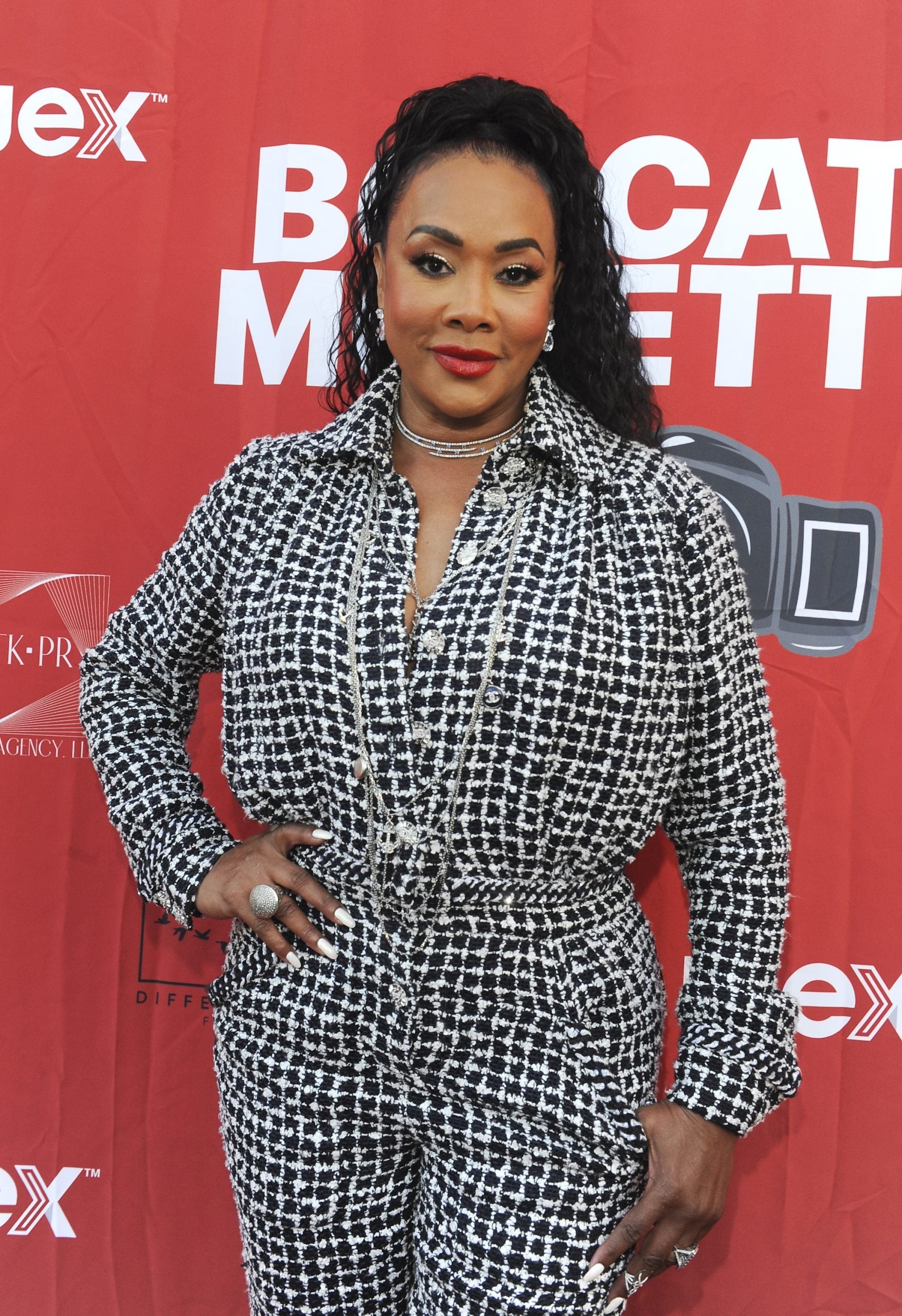
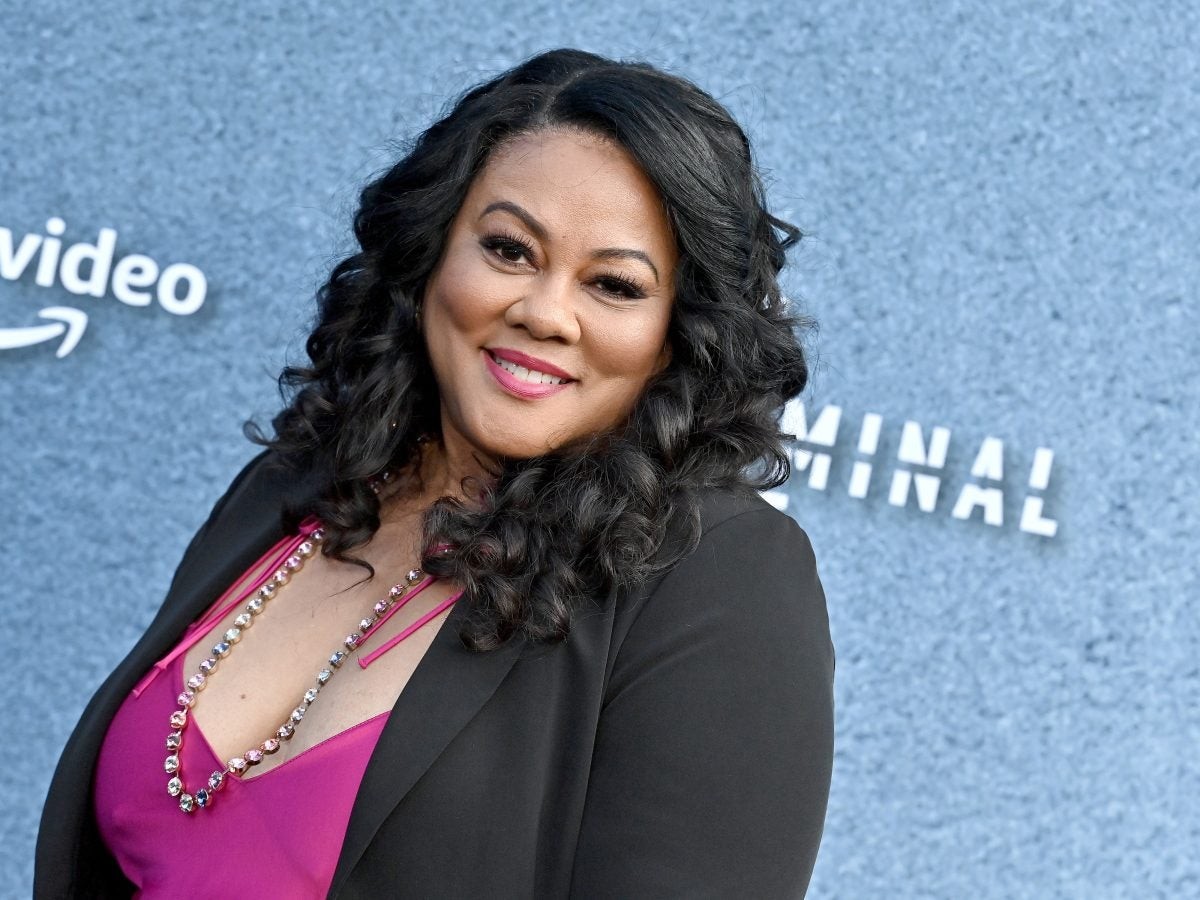
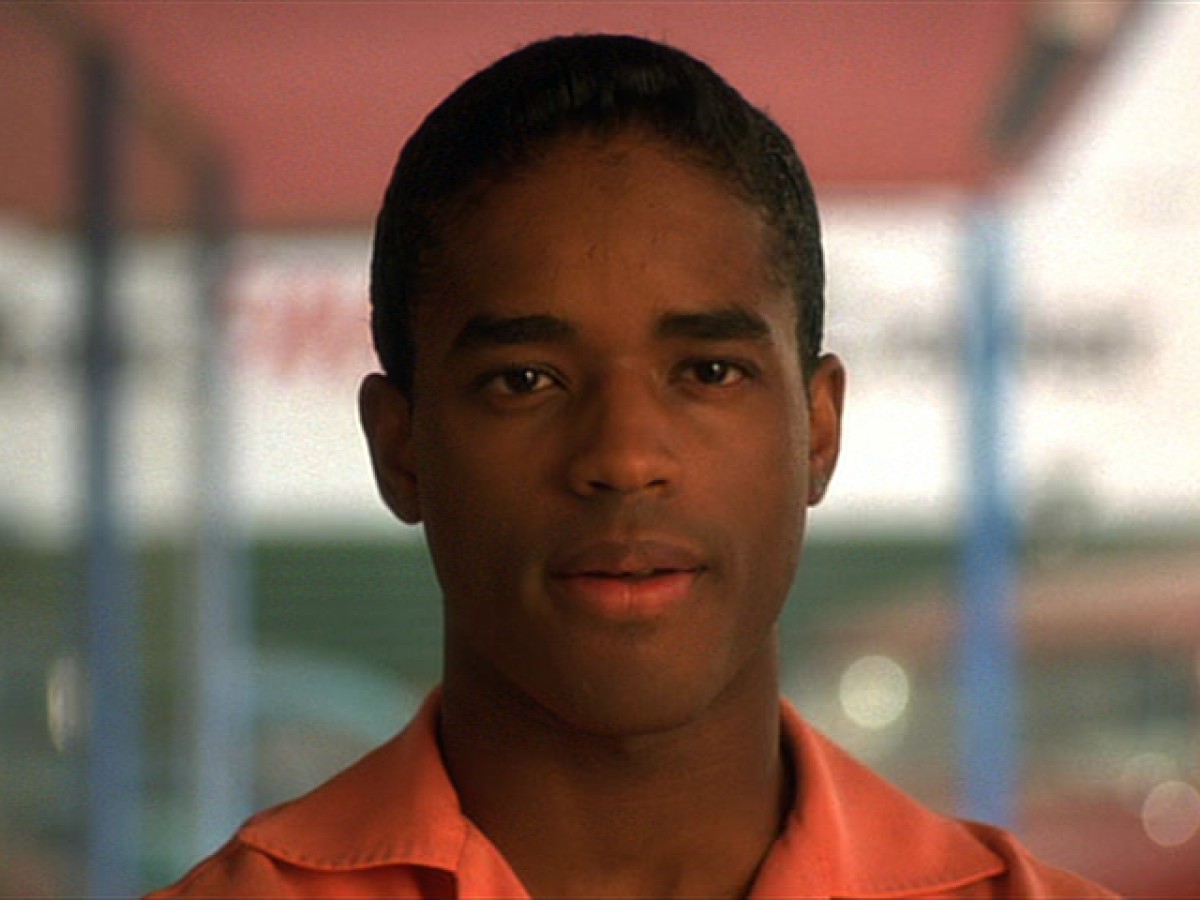
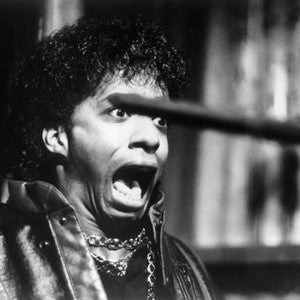

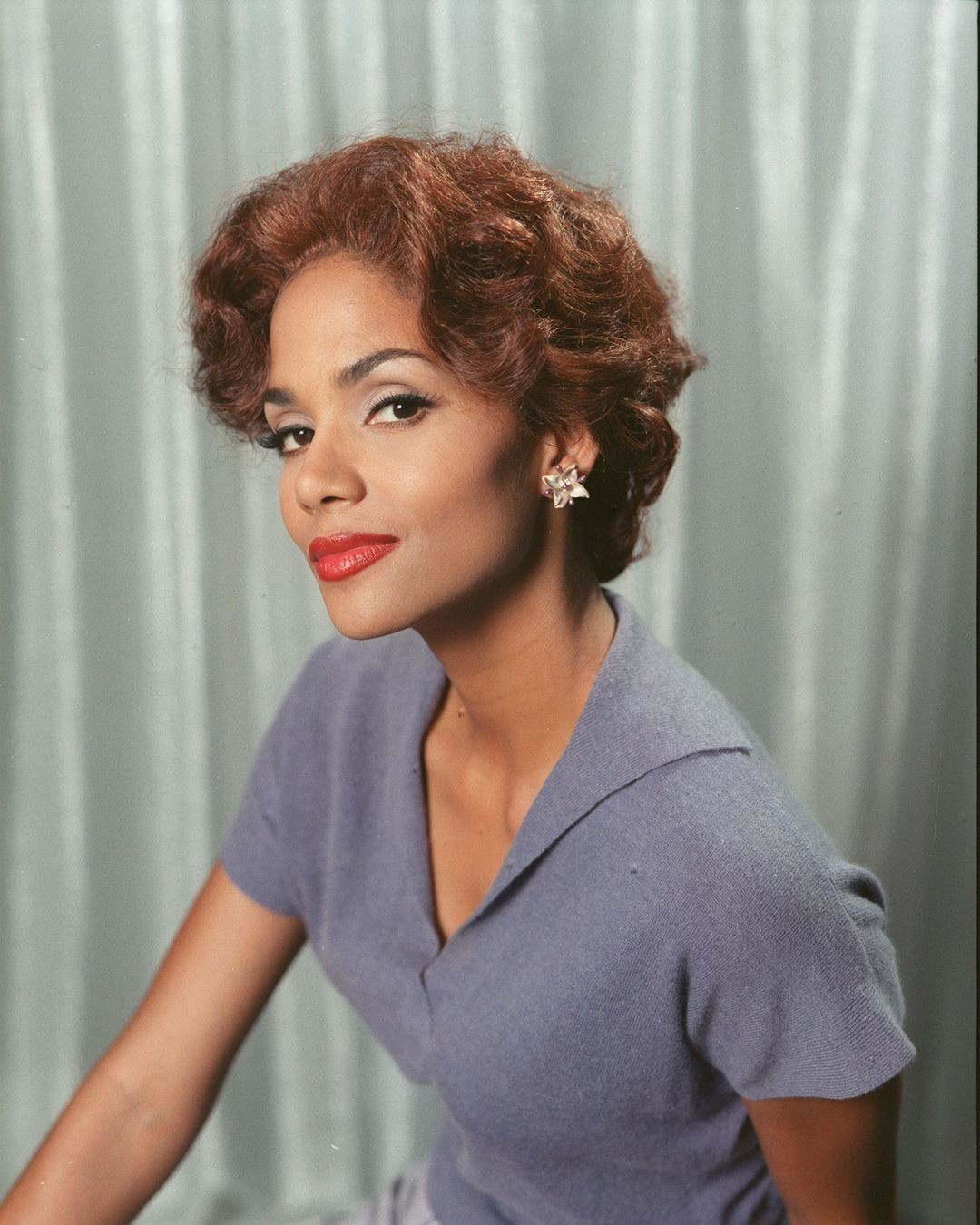
1.3 Biographical Accuracy and Creative License
While the film is based on real events, it takes creative liberties to dramatize and condense the story for cinematic effect. Some aspects of the characters and events may be exaggerated or fictionalized. For instance, some of the dialogue and personal interactions are imagined to enhance the narrative.
According to a review in Variety, the film offers a “glossy, energetic” portrayal of Lymon’s life but also notes that it “plays fast and loose with the facts for dramatic effect.”
1.4 Themes Explored in the Film
- Fame and Fortune: The film explores the impact of early fame on an individual and how it can lead to personal struggles.
- Love and Relationships: It delves into the complexities of love, marriage, and the challenges of maintaining relationships under the spotlight.
- Legal Battles: The courtroom drama highlights the legal system’s role in resolving disputes over estates and the challenges of proving marital status.
- Legacy: It examines the lasting impact of an artist’s work and the battles that can arise over their intellectual property.
1.5 Critical Reception
The film received mixed reviews upon its release. Critics praised the performances of the cast, particularly Larenz Tate, Halle Berry, Vivica A. Fox, and Lela Rochon. However, some critics found the storyline convoluted and the historical accuracy questionable.
Roger Ebert gave the film two and a half stars, noting that “the performances are energetic, but the story feels overstuffed and confusing.”
2. What is the Significance of the Song “Why Do Fools Fall in Love?”
The song “Why Do Fools Fall in Love” is a cornerstone of 1950s rock and roll and is central to understanding the film. Released in 1956, it catapulted Frankie Lymon & the Teenagers to fame and remains a classic today.
2.1 Origin and Composition of the Song
The origin of “Why Do Fools Fall in Love” has been subject to some debate. Officially, it is credited to Frankie Lymon and record producer George Goldner. However, songwriter Herman Santiago, a member of the Teenagers, claimed to have co-written the song with fellow members Jimmy Merchant and Joe Negroni before Lymon and Goldner were involved.
According to an article in The New York Times, Santiago and Merchant filed a lawsuit in the 1980s seeking songwriting credit, but the legal battle continued for decades.
2.2 Impact on Frankie Lymon & the Teenagers
The song’s release marked a significant moment in music history. It quickly climbed the Billboard charts, reaching number six on the pop chart and number one on the R&B chart. The success of “Why Do Fools Fall in Love” made Frankie Lymon & the Teenagers one of the first teen idol groups, paving the way for future acts like the Jackson 5 and NSYNC.
2.3 Lyrical Analysis and Themes
The lyrics of “Why Do Fools Fall in Love” explore the universal theme of romantic infatuation and the vulnerability that comes with falling in love. The song’s simple yet poignant questions resonate with listeners, making it an enduring classic.
Key Lines and Their Meanings:
- “Why do birds sing so gay?” – Reflects the joy and optimism associated with new love.
- “And lovers await the break of day?” – Captures the anticipation and excitement of romantic relationships.
- “Why do they fall in love?” – The central question of the song, pondering the reasons behind the human experience of falling in love.
2.4 Cover Versions and Cultural Influence
“Why Do Fools Fall in Love” has been covered by numerous artists across various genres, including Diana Ross, The Beach Boys, and Joni Mitchell. Each version brings a unique interpretation to the song, showcasing its versatility and timeless appeal.
- Diana Ross: Her 1981 version is a disco-infused rendition that became a hit in its own right.
- The Beach Boys: Their cover highlights the song’s pop sensibilities and harmonies.
- Joni Mitchell: Her acoustic version offers a more introspective take on the lyrics.
2.5 Connection to the Film
The song is not only the title of the film but also serves as a narrative thread that ties the story together. Its lyrics reflect the romantic entanglements and emotional complexities of Frankie Lymon’s life and relationships. The film’s soundtrack prominently features the song, reinforcing its significance.
3. What are the Legal Battles Depicted in the Movie Based On?
The legal battles depicted in the “Why Do Fools Fall in Love” film are based on the real-life disputes over Frankie Lymon’s estate and the rights to his music royalties. After his death, three women came forward, each claiming to be his rightful widow.
3.1 The Claims of Zola Taylor, Elizabeth Waters, and Emira Eagle
- Zola Taylor: A member of the Platters, Zola Taylor claimed to have married Frankie Lymon in 1965. However, her marriage certificate was never produced in court, and her claim was largely based on her personal testimony and public perception.
- Elizabeth Waters: Also known as “Mickey,” Elizabeth Waters claimed to have married Lymon in 1964 in Chester, Pennsylvania. She presented a marriage certificate, but its authenticity was questioned due to discrepancies and conflicting information.
- Emira Eagle: Emira Eagle claimed to have married Lymon in 1967 in Richmond County, Georgia. She provided a valid marriage certificate and presented evidence that she was Lymon’s wife at the time of his death.
3.2 Court Proceedings and Evidence Presented
The legal proceedings involved extensive investigation and presentation of evidence to determine the validity of each marriage claim. The court examined marriage certificates, witness testimonies, and other documents to assess the credibility of each woman’s case.
3.3 The Outcome of the Legal Battles
After years of legal wrangling, the courts ultimately recognized Emira Eagle as Frankie Lymon’s lawful wife. This decision was based on the validity of her marriage certificate and the evidence supporting her claim. As a result, Emira Eagle’s estate was entitled to Lymon’s royalties and intellectual property rights.
3.4 Implications for Music Copyright Law
The case of “Why Do Fools Fall in Love” has broader implications for music copyright law. It highlights the importance of clear documentation and legal recognition of marital status in determining inheritance and royalty rights. The case also underscores the complexities of intellectual property rights in the entertainment industry.
3.5 Academic Perspectives on the Case
According to a legal analysis published in the Journal of Intellectual Property Law, the case “serves as a cautionary tale about the importance of proper estate planning and documentation in the music industry.” It also notes the challenges of resolving disputes involving multiple claimants and conflicting evidence.
4. Who Were the Real-Life Women Portrayed in the “Why Do Fools Fall in Love” Film?
The “Why Do Fools Fall in Love” film portrays three women: Zola Taylor, Elizabeth Waters, and Emira Eagle. Each played a significant role in Frankie Lymon’s life.
4.1 Zola Taylor (Portrayed by Halle Berry)
Zola Taylor was a singer and member of the popular vocal group the Platters. She claimed to have married Frankie Lymon in Mexico in 1965. Her relationship with Lymon was marked by its high profile and public nature. Despite her claims, she was unable to produce a valid marriage certificate.
Alt text: Halle Berry portraying Zola Taylor at the 95th Annual Academy Awards.
4.2 Elizabeth “Mickey” Waters (Portrayed by Vivica A. Fox)
Elizabeth Waters, also known as “Mickey,” claimed to have married Frankie Lymon in Chester, Pennsylvania, in 1964. She testified that she met Lymon after his peak success and tried to support him through his struggles with drug addiction. Her marriage certificate’s authenticity was questioned during the legal proceedings.
Alt text: Vivica A. Fox attending the Bobcat Moretti Film Premiere, known for her role as Elizabeth Waters.
4.3 Emira Eagle (Portrayed by Lela Rochon)
Emira Eagle claimed to have married Frankie Lymon in Richmond County, Georgia, in 1967. She presented a valid marriage certificate and provided evidence that she was Lymon’s wife at the time of his death. Her claim was ultimately recognized by the courts, and she was declared Lymon’s rightful widow.
Alt text: Lela Rochon at The Terminal List Los Angeles Premiere, famous for her portrayal of Emira Eagle.
4.4 Accuracy of Portrayals
The film portrays these women with varying degrees of accuracy. While it captures the essence of their personalities and relationships with Lymon, some details are fictionalized for dramatic effect. The actresses brought depth and complexity to their roles, making them memorable characters in the film.
5. How Did Frankie Lymon’s Career Decline After His Early Success?
Frankie Lymon experienced meteoric success at a young age, but his career declined sharply after his initial fame. Several factors contributed to this decline.
5.1 The End of Frankie Lymon & the Teenagers
After the success of “Why Do Fools Fall in Love,” Frankie Lymon & the Teenagers faced internal tensions and management pressures. In 1957, Lymon was pushed to pursue a solo career, which ultimately led to the group’s breakup.
5.2 Struggles as a Solo Artist
As a solo artist, Lymon struggled to replicate the success he had achieved with the Teenagers. His record label pushed him in different musical directions, and he lost the unique sound that had made him famous.
5.3 Substance Abuse and Personal Problems
Lymon battled drug addiction throughout his adult life. His addiction led to legal troubles, financial difficulties, and damaged his reputation. These personal problems further derailed his career.
5.4 Changing Musical Tastes
The late 1950s and early 1960s saw significant shifts in musical tastes. Rock and roll gave way to other genres, and Lymon’s style of music fell out of favor with the mainstream audience.
5.5 Attempts at Comebacks
Lymon made several attempts to revive his career. In the mid-1960s, he signed with a new record label and tried to update his sound. He also toured and performed in smaller venues. However, these efforts failed to restore him to his former level of success.
Alt text: Frankie Lymon performing “Why Do Fools Fall In Love” in the movie Rock, Rock, Rock.
5.6 Tragic Death
Frankie Lymon died of a heroin overdose in 1968 at the age of 25. His death marked a tragic end to a promising career and cemented his legacy as a cautionary tale of early fame and its pitfalls.
6. What is the Significance of Little Richard’s Cameo in the Film?
Little Richard, a pioneering figure in rock and roll, has a brief cameo in “Why Do Fools Fall in Love.” His presence in the film underscores the cultural context of Frankie Lymon’s music and the era in which he rose to fame.
6.1 Little Richard’s Influence on Rock and Roll
Little Richard was one of the architects of rock and roll, known for his energetic performances, flamboyant style, and groundbreaking music. His hits, such as “Tutti Frutti” and “Long Tall Sally,” helped define the genre and influenced countless artists.
6.2 Connection to Frankie Lymon
Little Richard was a contemporary of Frankie Lymon and shared the stage with him at various concerts and events. Both artists were part of the burgeoning rock and roll scene in the 1950s.
6.3 Symbolic Representation
In the film, Little Richard’s cameo serves as a symbolic representation of the era and the musical landscape in which Frankie Lymon made his mark. His presence adds authenticity to the film and pays homage to the roots of rock and roll.
Alt text: Little Richard appearing in a cameo role in the film “Why Do Fools Fall In Love”.
6.4 Critical Commentary
Critics have noted that Little Richard’s cameo is a nod to the historical significance of the film and its subject matter. It acknowledges the contributions of early rock and roll pioneers and their impact on popular culture.
7. How Does “Why Do Fools Fall in Love” Film Depict the 1950s Music Scene?
“Why Do Fools Fall in Love” offers a vibrant portrayal of the 1950s music scene, capturing the energy, style, and cultural dynamics of the era.
7.1 Visual and Auditory Elements
The film uses visual and auditory elements to recreate the atmosphere of the 1950s. Costumes, set designs, and musical performances are carefully crafted to reflect the fashion and sounds of the time.
7.2 Concert and Performance Scenes
The concert and performance scenes in the film are particularly effective in showcasing the excitement and enthusiasm of 1950s rock and roll. The actors emulate the stage presence and musical styles of the era’s performers.
7.3 Cultural Context
The film also touches on the cultural context of the 1950s, including the rise of teenage culture, the influence of television, and the changing racial dynamics in the music industry.
7.4 Critical Analysis
According to film historians, “Why Do Fools Fall in Love” provides a nostalgic and stylized representation of the 1950s music scene. While it takes some creative liberties, it captures the essence of the era’s music and culture.
8. What is Larenz Tate’s Portrayal of Frankie Lymon Like?
Larenz Tate’s portrayal of Frankie Lymon is one of the most praised aspects of “Why Do Fools Fall in Love.” His performance captures Lymon’s charisma, talent, and inner struggles.
8.1 Capturing Lymon’s Charisma
Tate effectively conveys Lymon’s magnetic personality and stage presence. He emulates Lymon’s singing style, dance moves, and interactions with the audience, bringing the character to life.
8.2 Depicting Inner Struggles
Tate also delves into Lymon’s inner struggles, portraying his vulnerabilities, insecurities, and battles with addiction. He captures the emotional toll of early fame and the pressures of maintaining success.
8.3 Critical Acclaim
Critics lauded Tate’s performance, noting his ability to embody Lymon’s complexities. Roger Ebert described Tate’s portrayal as “energetic and convincing,” praising his ability to capture the essence of Lymon’s character.
Alt text: Larenz Tate visiting SiriusXM Studios, recognized for his role as Frankie Lymon.
8.4 Preparation and Research
Tate prepared for the role by studying Frankie Lymon’s life, music, and performances. He researched Lymon’s background, listened to his recordings, and watched archival footage to gain a deeper understanding of the character.
9. How Does the Film Address Themes of Race and Identity?
“Why Do Fools Fall in Love” touches on themes of race and identity within the context of the 1950s music industry. The film explores the challenges faced by African American artists in a racially segregated society.
9.1 Racial Dynamics in the Music Industry
The film portrays the racial dynamics of the 1950s music industry, where African American artists often faced discrimination and limited opportunities. It highlights the struggles of black musicians to gain recognition and fair compensation.
9.2 Cultural Appropriation
The film also touches on the issue of cultural appropriation, as white artists often covered and profited from the music of black artists. This dynamic is explored through the lens of Frankie Lymon’s experiences.
9.3 Identity and Self-Expression
The film examines how race and identity shaped Frankie Lymon’s self-expression and artistic vision. It portrays his efforts to navigate a complex racial landscape while staying true to his musical roots.
9.4 Critical Perspectives
Scholars have analyzed “Why Do Fools Fall in Love” for its portrayal of race and identity. Some argue that the film provides a nuanced perspective on the challenges faced by African American artists, while others criticize it for perpetuating certain stereotypes.
10. What is the Lasting Impact and Legacy of the “Why Do Fools Fall in Love” Film?
The “Why Do Fools Fall in Love” film has had a lasting impact on popular culture and continues to resonate with audiences today.
10.1 Renewed Interest in Frankie Lymon’s Music
The film helped renew interest in Frankie Lymon’s music, introducing his songs to a new generation of listeners. The film’s soundtrack became a hit, further popularizing his music.
10.2 Cultural Significance
The film has become a cultural touchstone, sparking discussions about fame, fortune, and the complexities of love and relationships. It is often cited as a prime example of a biographical drama that explores the dark side of success.
10.3 Influence on Other Films and Media
“Why Do Fools Fall in Love” has influenced other films and media that explore the lives of musicians and the challenges of the music industry. Its portrayal of legal battles and personal struggles has served as a template for similar stories.
10.4 Preservation of Music History
The film contributes to the preservation of music history by documenting the life and career of Frankie Lymon. It ensures that his story is not forgotten and that his contributions to rock and roll are recognized.
10.5 Critical Assessment
Film critics and scholars continue to analyze “Why Do Fools Fall in Love” for its historical accuracy, artistic merit, and cultural significance. The film remains a subject of debate and discussion, ensuring its lasting legacy.
Alt text: The cast of “Why Do Fools Fall In Love” celebrating the film’s 25th anniversary.
FAQ Section
1. Is “Why Do Fools Fall in Love” based on a true story?
Yes, the film is based on the real-life story of Frankie Lymon, the lead singer of Frankie Lymon & the Teenagers, and the legal battles among three women claiming to be his widow.
2. Who played Frankie Lymon in the movie?
Larenz Tate played Frankie Lymon in the “Why Do Fools Fall in Love” film.
3. Who were the three women claiming to be Frankie Lymon’s widow?
The three women were Zola Taylor (played by Halle Berry), Elizabeth “Mickey” Waters (played by Vivica A. Fox), and Emira Eagle (played by Lela Rochon).
4. What is the significance of the song “Why Do Fools Fall in Love?”
The song was Frankie Lymon & the Teenagers’ biggest hit and is central to the film’s narrative, reflecting the themes of love and heartbreak.
5. Did Frankie Lymon die young?
Yes, Frankie Lymon died at the age of 25 from a heroin overdose.
6. Who was ultimately recognized as Frankie Lymon’s rightful widow?
Emira Eagle was ultimately recognized by the courts as Frankie Lymon’s rightful widow.
7. What is Little Richard’s role in the film?
Little Richard has a cameo in the film, representing the 1950s music scene and paying homage to the era’s rock and roll pioneers.
8. How does the film portray the 1950s music scene?
The film offers a vibrant portrayal of the 1950s music scene, capturing its energy, style, and cultural dynamics through visual and auditory elements.
9. What themes does the film explore?
The film explores themes of fame, fortune, love, relationships, legal battles, race, and identity.
10. What is the lasting impact of the “Why Do Fools Fall in Love” film?
The film has had a lasting impact on popular culture, renewing interest in Frankie Lymon’s music and sparking discussions about the complexities of fame and love.
Do you have more questions about “Why Do Fools Fall in Love” or any other topic? Visit WHY.EDU.VN to ask your questions and receive answers from our team of experts. We are located at 101 Curiosity Lane, Answer Town, CA 90210, United States. Contact us via Whatsapp at +1 (213) 555-0101 or visit our website at why.edu.vn.